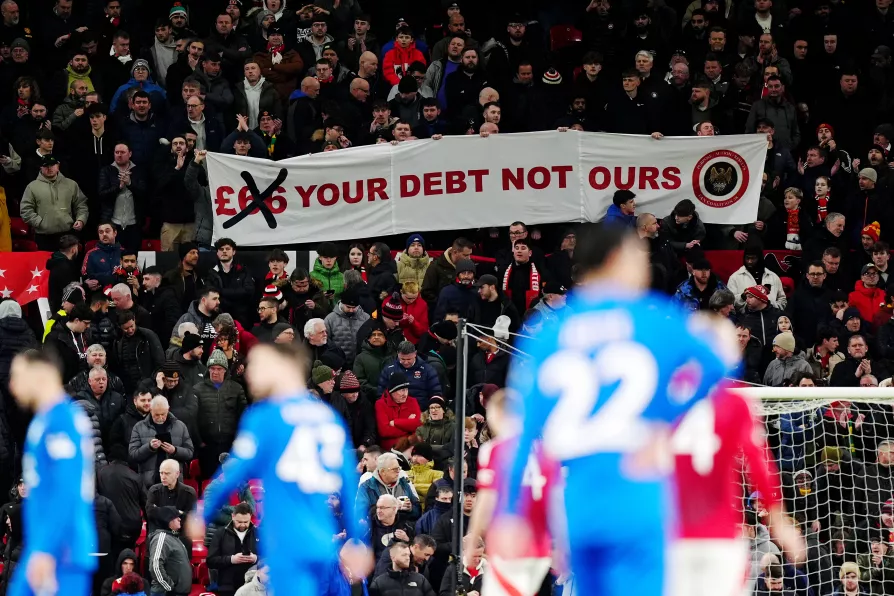Overseas fans as allies in the collective supporter movement
JAMES NALTON discusses how people are trying to reclaim the game at the top level, which has drifted into the hands of the ownership class of billionaire capitalists

 Manchester United fans unveil a banner in protest of increased matchday ticket prices during the UEFA Europa League, league stage match at Old Trafford, Manchester, January 23, 2025
Manchester United fans unveil a banner in protest of increased matchday ticket prices during the UEFA Europa League, league stage match at Old Trafford, Manchester, January 23, 2025
COLLECTIVE momentum is growing within English football support as fans try to reclaim or hang on to the game at the top level, which has drifted into the hands of the ownership class of billionaire capitalists and state ownership.
During the past year or so, a fan-led movement across English football has protested against owners and governing bodies exploiting fan loyalty. It’s a movement that is still growing and has proved vital in securing ticket price freezes at some clubs and putting pressure on those owners who are still finding excuses to raise prices.
Similar stories

A new front in the fight for football’s soul is emerging — one rooted in trade union values and collective power

JAMES NALTON writes about Iran's qualification for the tournament and whether the United States is fit to welcome visitors from across the world

JAMES NALTON discusses the latest episode in an ongoing series of ticketing chaos in top-flight football, this time for season ticket holders at Newcastle and Arsenal










